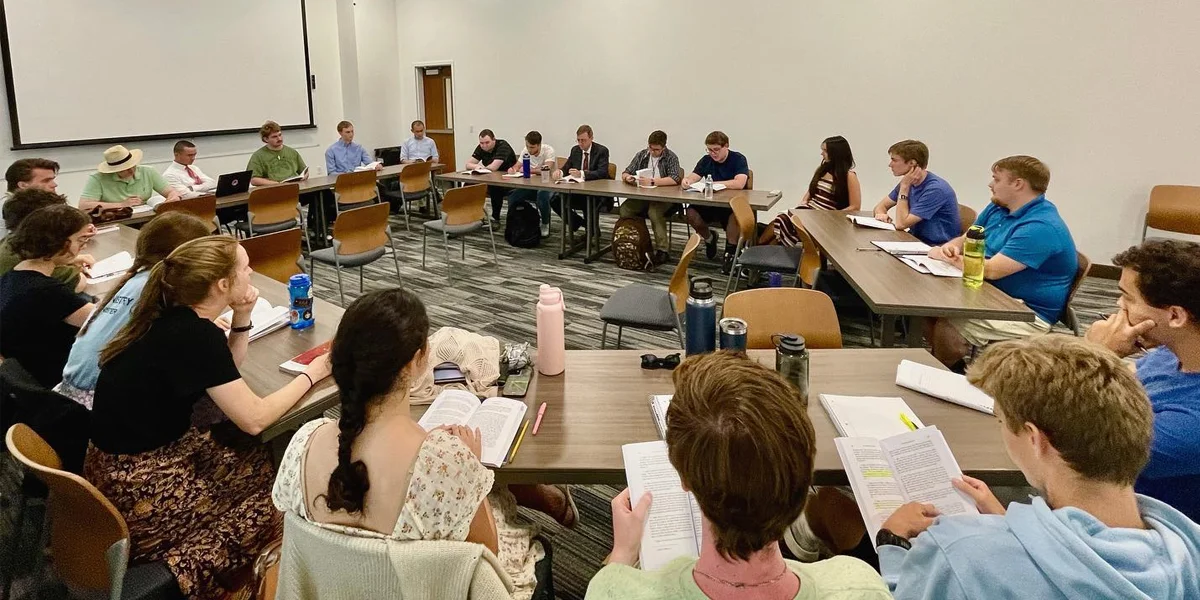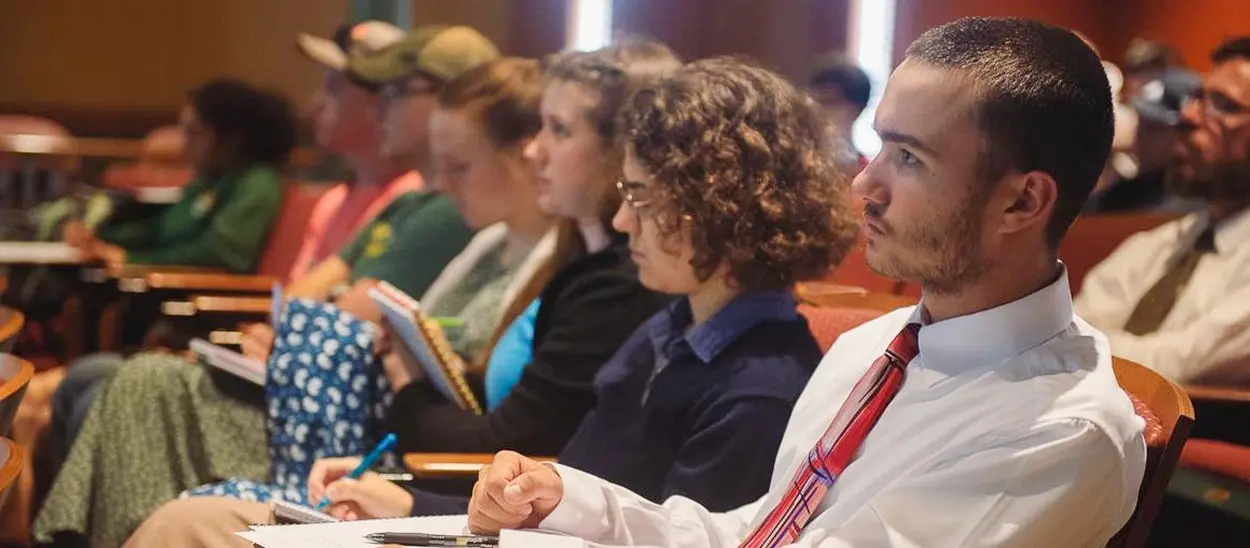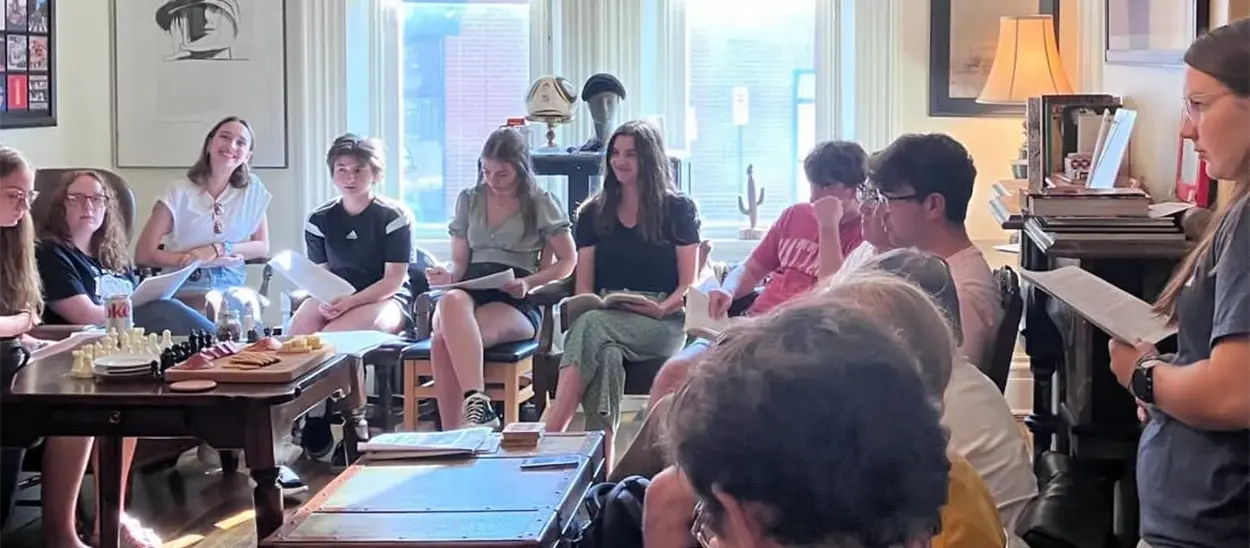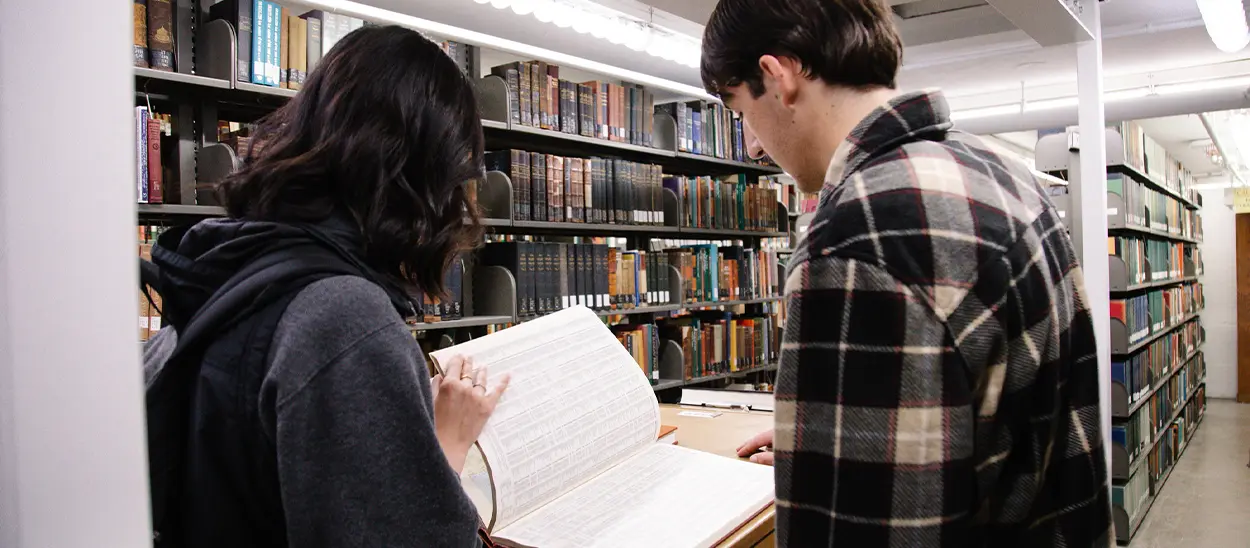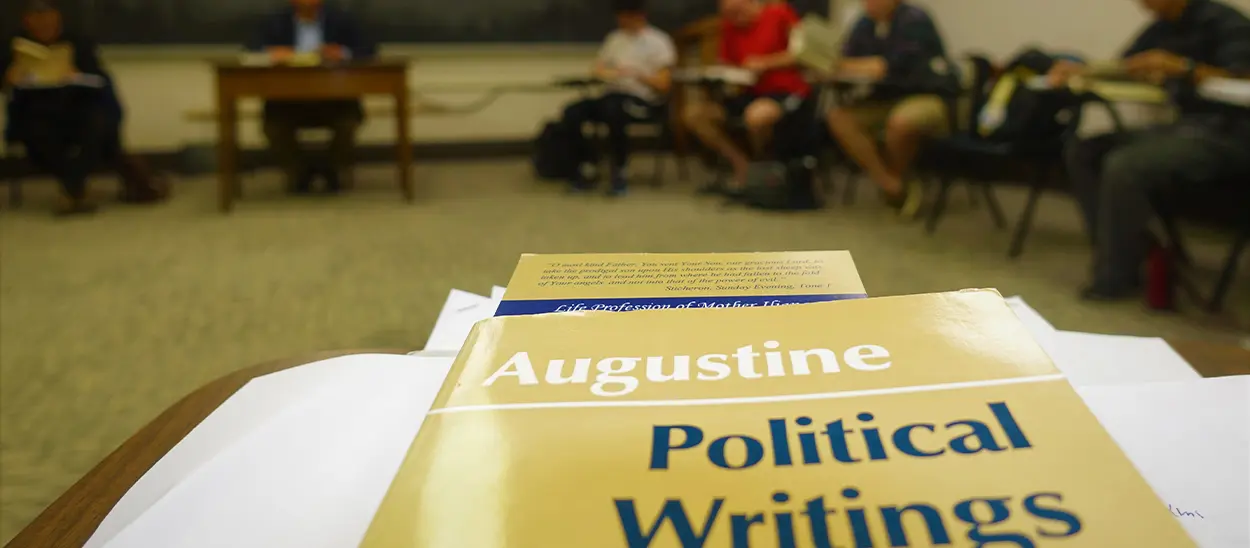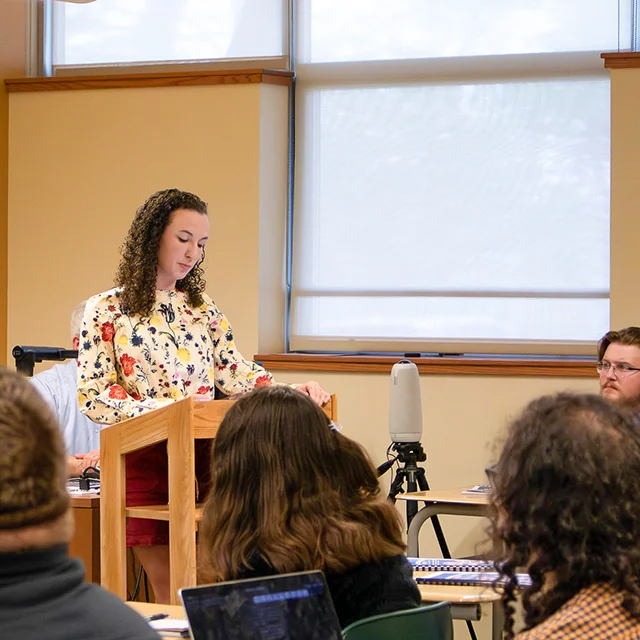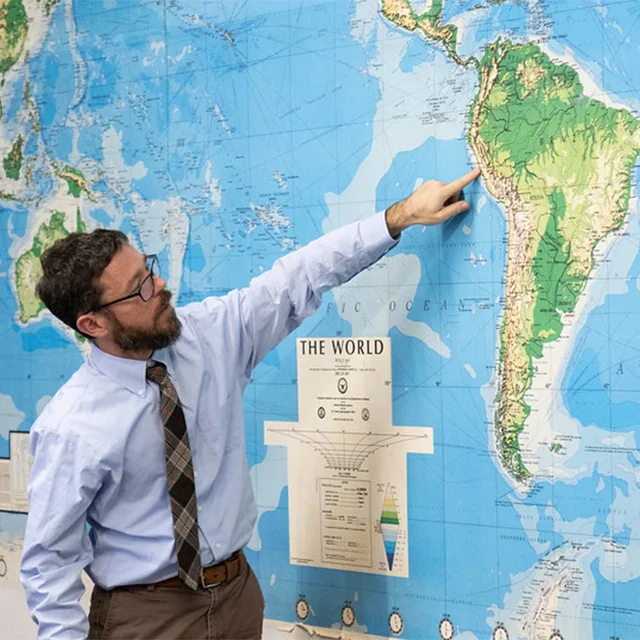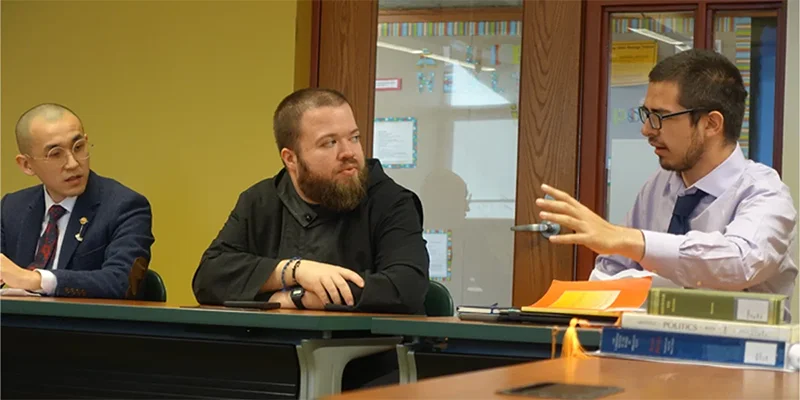Justice and Charity: This course explores the virtues of justice and charity, essential for securing the common good. Through St. Thomas Aquinas’ virtue theory, students will study these virtues’ roles in moral, economic, and political life, and apply Aquinas’ insights to contemporary issues and Catholic Social Teaching.
Ethics and Technology: This course examines moral questions arising from technological advancements. It covers the history and philosophy of technology, ethical theories, and their application to cybertechnology, surveillance, new media, robotics, AI, and biotechnology. The goal is to evaluate moral frameworks for guiding actions amidst increasing automation.
Philosophical Anthropology: This course explores the question, “What does it mean to be a human being?” It examines leading views of human existence over the past 24 centuries, focusing on our capacity for independent action and the influence of historical, linguistic, and cultural elements. The course reflects on the character of human nature.

